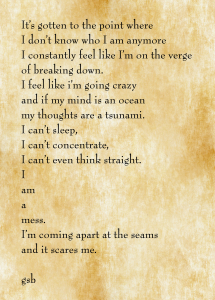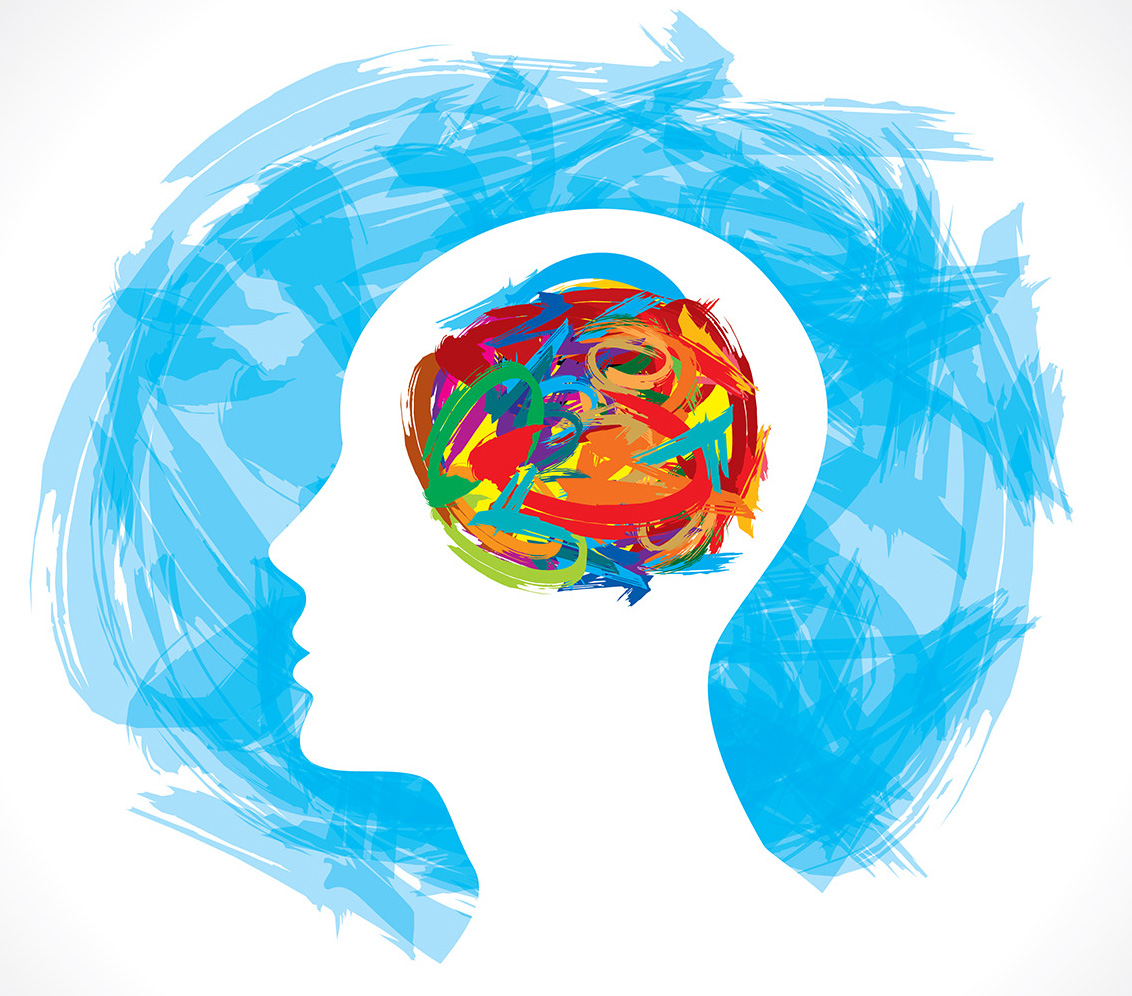 This piece of writing by GSB demonstrates how our mental health can affect us when it deteriorates. We don’t know what to do, who to turn to, we feel isolated, hopeless and empty inside, like all the happiness has been sucked out of us.
This piece of writing by GSB demonstrates how our mental health can affect us when it deteriorates. We don’t know what to do, who to turn to, we feel isolated, hopeless and empty inside, like all the happiness has been sucked out of us.
Below are some practical ways that you can do daily to improve your mental health.
Express Yourself
Many of us can get in touch with our feelings, it’s what to do after we start to feel the pain, sadness, anger and all the other overwhelming feelings we like to bury in the back of our minds. Expressing them may seem like a titanic task, however there are certain ‘small’ things you can do to ensure you don’t get overcome by them.
- Talk to someone you trust. There’s nothing like the fear of judgment to stop us from opening up. Talking about our feelings can really help; just being listened to can help us feel supported and less alone.
- Write in a journal. Writing is cathartic. Even if you set aside 15 mins a day to write about how you felt during the day, it can go a long way towards releasing some of those pent up feelings and you will be less likely to blow up at the wrong time.
- Doodle. Colour. Paint. Doing something creative can tap into our emotions and help us visualise what we are feeling. There are many adult colouring books out there, designed specifically to help keep your focus in the here and now; even if you spend 15mins a day colouring in, it will give your mind a break from the stresses and tension you’re carrying around.
Exercise
Exercise releases endorphins (chemicals in your brain) that make you feel good. Regular exercise can boost self-esteem, help you sleep, feel and look better. Exercise doesn’t necessarily mean going to the gym, or running. It could mean going for a walk, gardening, anything that gets you up and about. Aim for 30mins of exercise, 5 times a week.
Eat Well
Many of us take comfort from food; there are strong links between how we feel and what we eat. A healthy balanced diet can have a long-lasting effect on our mental health. A healthy balanced diet includes:
- Lots of different types of fruit and vegetables.
- Wholegrains and cereals.
- Nuts and seeds.
- Dairy products.
- Oily fish, lean proteins.
- Plenty of water.
Please Note: The advice on this page may not apply if your doctor or dietician have given you specific dietary advice, e.g. if you are a kidney patient or a diabetic.
Reconnect with friends and family
Catching up with friends and family can significantly reduce feelings of sadness and loneliness. Isolating yourself is natural when you’re feeling low, however being alone can heighten our fears and anxieties, and sometimes we fall into the cycle of thinking that no-one cares about us, when in fact it’s us that have closed the door on our support network. It’s worth making the effort (and we know it’s an effort when you’re feeling down) to reconnect with people who value you, it will make you feel better.
Ask for help
Even though it’s tempting to shut the world out until you ‘deal’ with what you’re going through by yourself, it’s important that you receive the help you need. Sometimes we don’t know what it is that we need until we ask for help. There are professionals out there that can guide you and help you set up coping strategies; speak to your GP, they can refer you onto people that can help. There are also groups out there that you can join, both physically an online.
You should consider speaking to either a counsellor or your GP if your difficult feelings are:
- stopping you getting on with life
- having a big impact on the people you live or work with
- affecting your mood over several weeks
Over 30% of visits to the GP are for mental health; you are not alone in asking for help.
Take a break
This doesn’t necessarily mean going away for a few days. You can give yourself some time while at home, try some of the below, and see if any work for you.
- Meditation.
- Yoga.
- Hobby – this could be anything you enjoy doing, reading, writing, something creative, puzzles. Absolutely anything that gives you the chance to concentrate on yourself.
- Sleep – if we’re not getting enough sleep, and many of us aren’t, then take some time to sleep. Tiredness can affect our concentration as well as our mental health.
- Bath – give yourself some time to relax and have a good soak. It can have a positive impact on both our muscles as well as our senses.
- Or just put your feet up with your favourite TV programme.
Continuous anxiety and low feelings can make us think we’re losing our minds; but following some of these steps can stop you from feeling like things are spiralling out of control. If you feel that you’re holding onto your sanity by a thread, contact us and we can arrange one of our psychotherapists to talk to you.


Leave a Reply